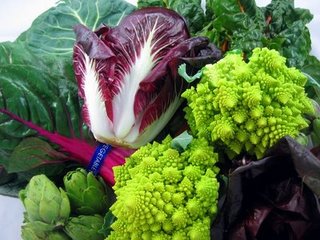 In honor of the food issue this week at Synapse, I compiled a list of 10 essential diet and nutrition facts you might not know:
In honor of the food issue this week at Synapse, I compiled a list of 10 essential diet and nutrition facts you might not know:Top 10 Food Facts Everyone Should Know
 In honor of the food issue this week at Synapse, I compiled a list of 10 essential diet and nutrition facts you might not know:
In honor of the food issue this week at Synapse, I compiled a list of 10 essential diet and nutrition facts you might not know:- “Vitamins” are not the same as whole foods. Instant ramen and a multivitamin is not a healthy meal. There is no substitute for a diet of whole foods rich in vegetables, beans, grains and fish.
- A healthy diet can prevent or even reverse four out of the six leading causes of death in the US. Evidence indicates that diet is more important than genetics in the vast majority of heart disease, stroke, cancer and type 2 diabetes cases.
- The thinnest, healthiest people in the world eat “high carb” diets. But they definitely do not eat the processed, refined carbohydrates that flood Western culture. If you want to lose weight and live longer without disease, eat more vegetables and whole grains.
- You get plenty of calcium. Americans consume more calcium than most countries on earth, yet still sport some of the highest rates of osteoporosis. This debilitating disease is more likely caused by insufficient vitamin D, not enough exercise and/or too much protein. Also, excess calcium is linked to prostate cancer and milk to ovarian cancer. Calcium does not support weight loss either.
- “Fiber” is not the same as vegetables and grains. Fiber supplements do not offer the same benefits as fiber-filled foods, and do not help with weight loss or protect against disease.
- The best sources of protein are plants and fish. It is relatively easy to get complete protein (i.e., all the essential amino acids) from a diverse diet. Protein from red meat offers more risk than reward. (Yes, pork is red meat.)
- Fruits and vegetables protect your vision. Both cataracts and macular degeneration are strongly tied to diet.
- Fats from land animals and factories are dangerous. Saturated and trans fats (not total dietary fat) are associated with heart disease, type 2 diabetes, cancer and obesity. Replacing saturated fat with unsaturated fat could save your life.
- Fats from plants and fish are essential. Mono- and polyunsaturated fats protect against heart disease, type 2 diabetes and memory loss. In moderation they can also aid in weight loss, since they increase the satiety you feel after a meal.
- You can lose weight on any short-term diet, but you will probably gain back more than you ultimately lose. This is often true even if you stay on the diet. Focusing on long-term health is the best strategy for sustained weight loss, but it requires patience.
Comments? Leave your intelligent feedback down below or consider following CollegeTimes on Facebook or Twitter to stay updated or to get in touch!
Share This Story:
Page ID #34788 - Last updated on
Tags:
Please scroll down to leave a comment.

It’s reassuring to know that I’m already doing most of these things, but thanks for sharing this with us! Always great to read these health tips.
excellent info thanks!